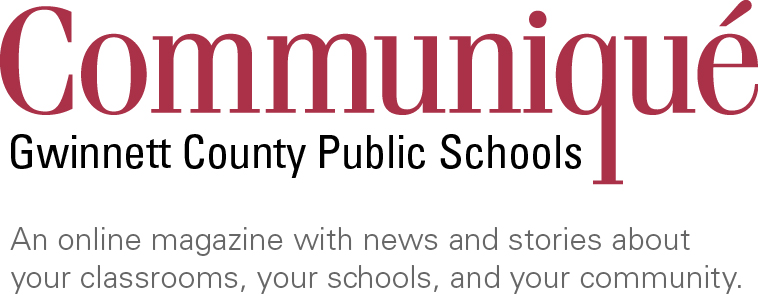January is National Mentoring Month, and Gwinnett County Public Schools (GCPS) and the district’s Community-Based Mentoring Program recognize the positive impact of mentoring on a student’s future.
Serving students on a one-to-one basis and in small groups, GCPS’ mentoring program focuses on African American girls and boys and Hispanic girls and boys. The program is committed to being future-driven, helping students build a sense of belonging, and building positive relationships in our community. This school year, participants include 1,110 student mentees from grades 6-12 across the school district. By actively recruiting more mentors, the program can connect more young people with caring adults.
“Communication and consistency are two of the most successful elements of a mentor and mentee relationship,” says James Rayford, director of the Community-Based Mentoring Program’s focus on African American boys. “A prospective mentor is a caring adult who believes in themselves and in our students and can act as a significant presence in a student’s life. It is gratifying to have men who have served as volunteer mentors for more than 10 years and they still remain in contact with their mentees after graduation. Mentoring is powerful and life-changing.” Launched in 2009, this part of the Community-Based Mentoring Program now serves almost 500 African American boys in grades 6-12 at 58 schools.
“One of the most impactful parts of our mentoring program for me is the genuine, authentic relationships we have built with families,” says Nury Castillo Crawford, director of the Community-Based Mentoring Program supporting Hispanic girls. “To be an effective mentor you don’t need degrees or titles. You just need to care.” Nearly 200 students at 31 schools are served through this part of the mentoring program.
Nicole Tomlinson, director of the Community-Based Mentoring Program engaging African American Girls, agrees and adds, “I have been a mentor to the same young lady for almost 15 years. She is now married with a beautiful daughter. Even though distance keeps us from getting together in person regularly, we are intentional about staying connected. Over the years, we have remained in each other’s lives even as our families continued to grow. It is important that our relationship continues to grow through shared experiences and trust. This is something I would like all of our girls to experience.” The Community-Based Mentoring Program started serving African American girls in 2018, and now engages 370 mentees at 41 schools.
GCPS’ mentoring program features enrichment opportunities for mentees including College and Career Readiness, Saturday Life Lessons, College Tours, and Field Trips. It also provides guidance, encouragement, and support, helping the students become successful young adults, both in and out of school.
LaTasha Boynton, 5th grade teacher at Kanoheda Elementary, marks her third year as a mentor to an 8th grader. “The value of being a mentor is not about what you have or even what you’ve accomplished,” she says. “Mentoring is about who you’ve lifted, who you’ve made better. This mentoring program is about what you’ve given back to our students and lifelong relationships.”
Mentoring’s influence is evident in the numbers, and research shows that young people achieve personal, academic, and ultimately, professional growth. When a mentor is present in their lives, young people are
78% more likely to volunteer regularly in their communities.
90% interested in becoming mentors themselves.
130% more likely to hold leadership positions.
While mentees have much to gain from mentoring, the mentors also benefit from expanding their own leadership skills, building professional networks, and giving back in a meaningful way to their communities.
Oj Soto, director of the Community-Based Mentoring Program focused on Hispanic boys, hears positive feedback from participating mentees and mentors. “Many have said that they wish they could have been a part of the program at an earlier age,” he says. “Mentors have also mentioned that the students have been a blessing to them.”
Considering joining GCPS’ mentoring corps? “I say—jump in,” Mr. Soto says. “Take the one-year commitment and use it to pour into the life of a young person that could result in a lifelong friendship.”
The district is seeking both men and women to serve as mentors. Prospective mentors, who must be 21 or older, must follow these steps:
Complete a mentor application.
Attend a Volunteer Mentor Training Session (training dates are shared with confirmed mentors).
Complete the fingerprinting and background check process.
The district matches mentors who have completed all steps in the application process with student mentees and provides ongoing support and resources for a successful mentoring experience.
Community members and local businesses also can support the program in other ways—from learning opportunities and event sponsorships (like the March 28 golf tournament) to financial donations and in-kind contributions. Learn more online.
Interested in becoming a mentor? Call 770-682-8086 or visit the program’s webpage.

